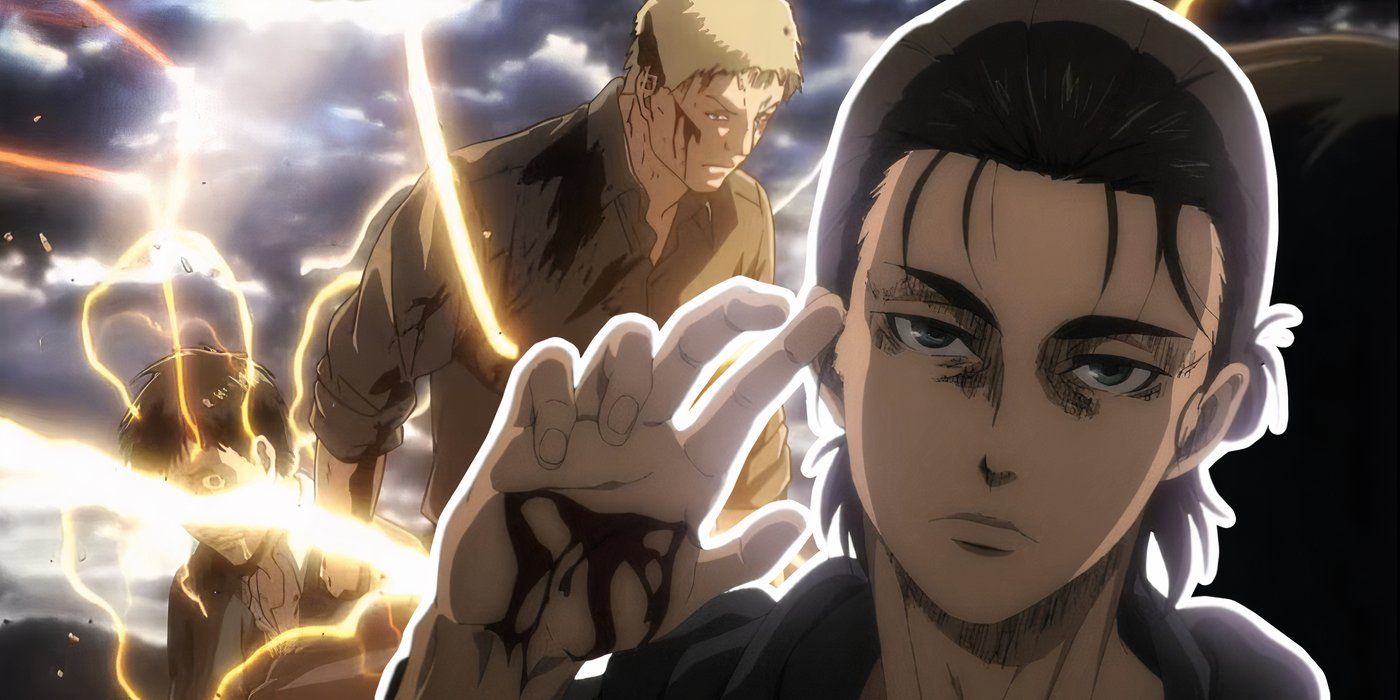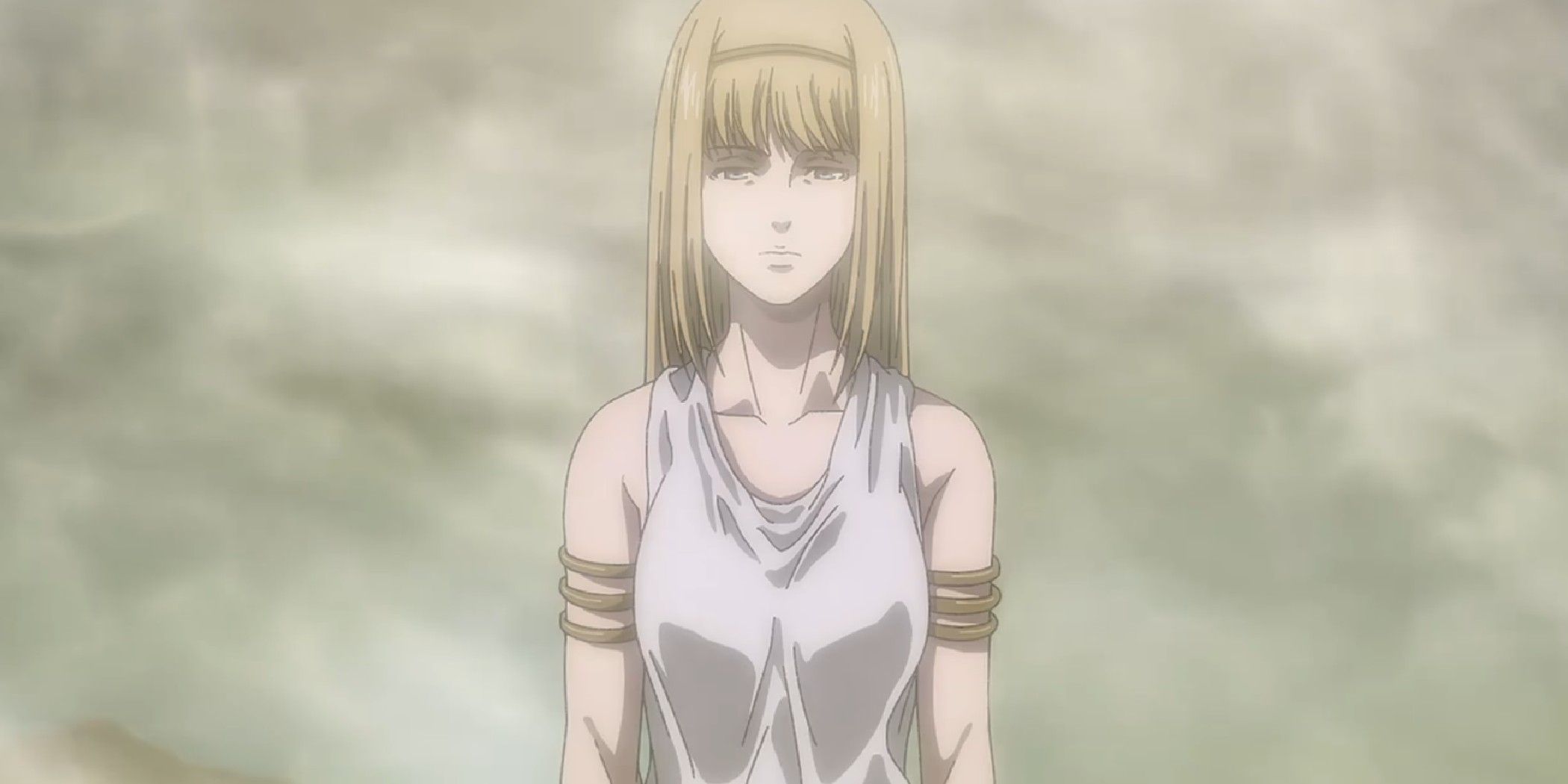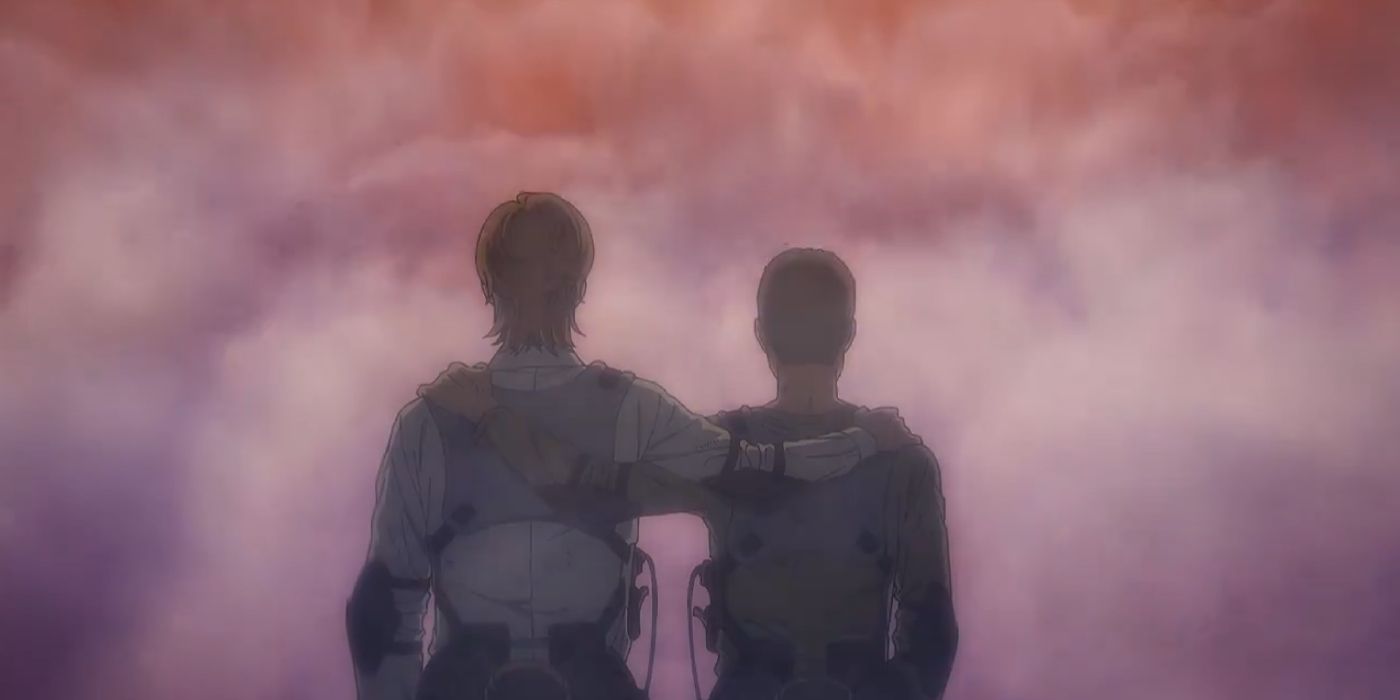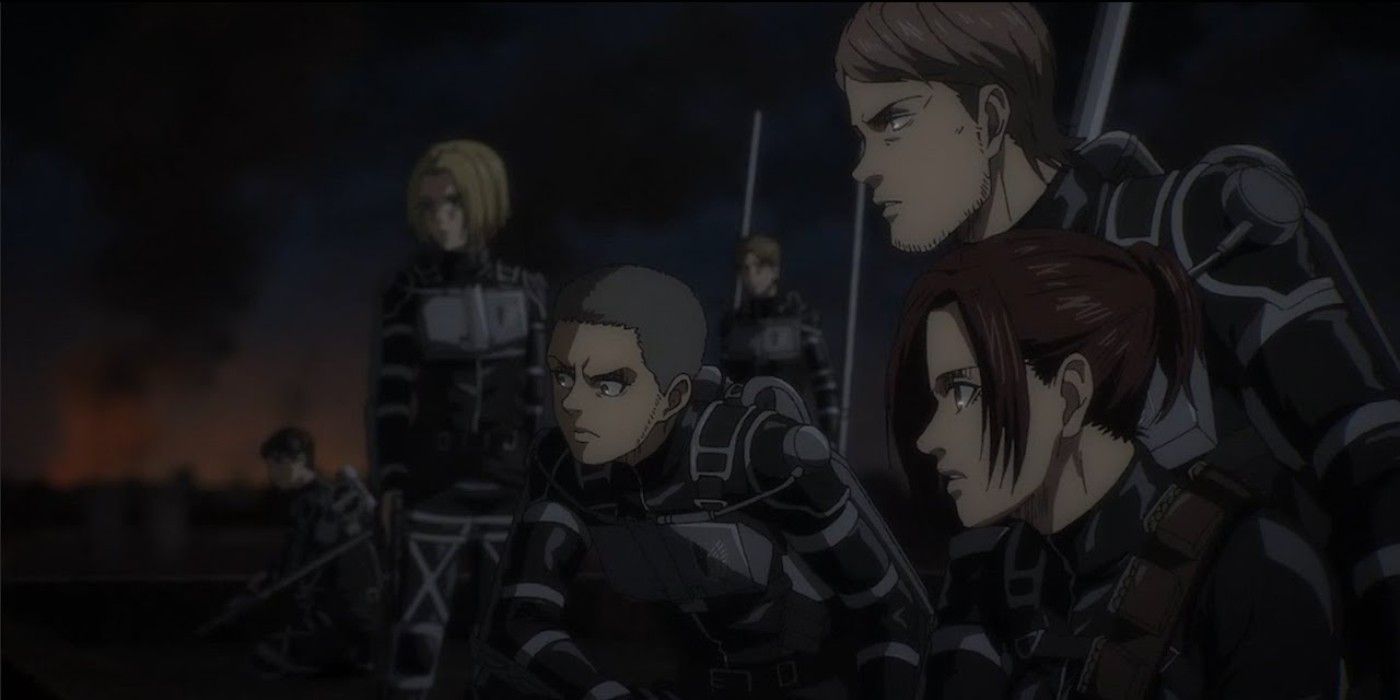
The non-linear narrative is creative and always causes a shock, as most anime tell their story in a direct and linear way. Because of the familiar format I expected, when Attack on Titan began the fourth season with a new cast of characters, I was confused and a little frustrated. I wanted to see the old familiar cast of Eldians that I've grown to love over the past three seasons, and I still didn't know who the Marleyans were.
When rewatching Attack on TitanI came to understand that This method of storytelling was brilliantin a way I didn't understand until I finished the series. The difference between the end of the third season and the beginning of the fourth season was about four years. This is a substantial time jump in and of itself, but the story takes it a step further by starting the new story in an entirely new country, with a new set of characters: the Marleyans. This sudden change was shocking at first, but over time it improved my appreciation for the series.
The non-linear narrative gave me a different perspective on people considered “enemies”
The Marleyans resented Eldia due to the previous violence and bloodshed caused by Eldia's former ruler, King Fritz
By introducing the Marleyans, unpacking their side of the conflict between humans and Titans, and exploring why they had a negative view of the Eldians, I began to question everything I was led to believe while watching the last three seasons. The story seemed to frame the Eldians as heroes until then, painting them as people who were exiled and senselessly mistreated by the rest of the world, trapped on an island to fend for themselves. However, the Marleyans had an entirely different view of the Eldians' place in society because of their experiences with the Eldian king, Fritz.
The Marleyans suffered under the tyranny of King Fritz during his rule, as did the rest of the world. The cruel, Power-hungry king exploited Founder Ymir's powers to keep the rest of the world under his control. To grow his expansive empire, he performed violent acts on the Titans, causing the rest of the world to fear and resent Eldia as a result of his despicable actions. Knowing this background, it makes more sense why the Marleyans hate the Eldians and want to destroy them because, through their perspective, the previous Eldian king caused them as much harm as the Titans.
Focusing on the Marleyans in season four humanized them
The Marleyans' motives and experiences became clearer with the background provided in season four.
When the Eldians were reintroduced to the battlefield midway through season four It was getting harder and harder for me to decide who to root for. or who was still on the “right” side of the conflict. This uncertainty is exactly what mangaka Hajime Isayama intended, making it nearly impossible for viewers to “choose sides” because the conflict isn't as straightforward as it seemed in the first season. The Marleyans transformed from pointlessly evil enemies to people fighting to protect their loved ones and the country they feared was at risk due to the Eldians' past actions.
Something had to change, or the humans in the story would fall apart before the Titans had the chance. Fortunately, as audiences began to see the Marleyans' side of the conflict in a new light, so did the Eldians and vice versa. The Marleyans and Eldians themselves began to see each other as potential allies and not enemies, realizing that they were all fighting for the same cause: defeating the Titans. By humanizing each other, understanding the other side's motives and experiences, and aligning themselves under a common goal, the two groups ultimately made progress toward achieving harmony and leaving violence behind.
The Eldians became sympathetic because of the way seasons one through three were structured
The non-linear narrative in season four suggests that neither side, Eldia or Marley, is the story's true enemy
Many Attack on Titan viewers, I admit, myself included, were very quick to judge Reiner, Annie, Bertholdt and the Marleyans. The story seemed to frame them as “enemies,” a fact that viewers blindly accepted. But upon rewatching the series, I began to wonder. If the story had begun in Marley rather than Eldia, highlighting the plight and struggle of the Marleyans to protect their citizens from further Eldian violence, Would I have developed sympathy for the Marleyans and seen the Eldians as enemies? I think the answer is probably yes, because the way the story is presented drastically affects viewers' perception.
The Marleyans could have become the fan group to root for instead of the Eldians if the story had started differently. When switching between perspectives in later seasons, Attack on Titan keeps viewers on their toes and unravels the complexities of the conflict. As the series' final season seems to suggest, Between the Eldians and the Marleyans, perhaps neither is “the enemy.” It was this realization that allowed both groups to put aside their differences and fight to stop Eren Jaeger and the Titans. Hajime Isayama talked about anti-war sentiments in his story, and this method of storytelling contextualizes these messages.
Non-linear perspective highlights similarities rather than differences
By making viewers question who the real “enemy” is, Isayama affirms anti-war and non-violence themes
As the Marleyans and Eldians began to recognize what they had in common: the goal of stopping the Titans and the desire to protect their homes and loved ones, they began to make progress toward a lasting peace. The war didn't end instantly, even with Eren's death and the end of the Rumbling. War is not a problem that can be easily erased with a grand gesture. But, the non-linear narrative perspective of Attack on Titan suggests that in this conflict and many others, the side of the battle considered the “enemy” of all It depends on who is making that judgment and the information they have.
Isayama's story highlights the importance of more beneficial and nuanced views of conflicts like these, without broadly painting one side as “good” and the other as “bad.” Once the Eldians and Marleyans stopped perceiving the other side as pure evil, they began to overcome their differences and even cooperate as allies, fighting together against the Titans that were harming them both. In such a brilliant way, Attack on Titan takes its viewers on this journey with the Eldians and Marleyans, making viewers realize that their Preconceived notions about the true “enemy” in the story may not be as accurate as once believed.


